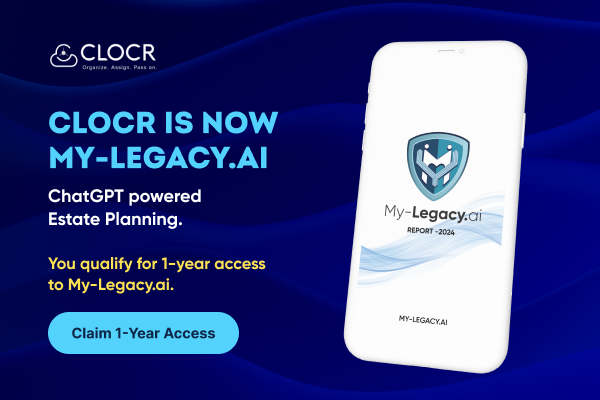Each day, people become more and more connected via the virtual world. We use our smartphones and laptops to talk with friends, upload our pictures and store passwords and other important information. It includes everything we leave in the online world – our posts, comments, blogs, videos, and anything else. It is why Digital Estate Planning has gained traction in recent years.
So let’s discuss everything about Digital Estate Planning
What is a Digital Estate?
Digital Estate refers to your online accounts and the electronic devices used to access these online accounts. The online accounts may include bank services, gaming profiles, third-party payment services, social media accounts, cloud storage, online documents, and cryptocurrency.
Electronic devices used to access this information include eBook readers, tablets, computers, laptops, and smartphones.
What is Digital Estate Planning?
Digital Estate Planning refers to the process of organizing your Digital Assets (online subscriptions, social media, payment, and other online accounts) and making arrangements for them after your death.
In past decades, technology has vastly advanced. With the availability of the internet, we have seen an increase in social media and other online account users globally. Digital Property is as important as any tangible or physical property.
Have you wondered what happens to the payment accounts and your subscription of the deceased? How about social media accounts of the dead? Managing these Digital Assets has become a necessity and this can be done via a Digital Estate Plan.
Is There Any Real Value To Our Digital Assets?
Digital Assets such as cryptocurrency, influencer accounts have monetary values. It often has a lot of sentimental value, like old pictures, messages, and videos, and domain names and websites can also get sold for a lot of money. Irrespective of their monetary value, digital Estate Planning is essential.
How Difficult Is It To Manage The Digital Assets Of A Deceased Loved One?
Managing someone else’s Digital Assets has the following challenges:
1. No Paper Trail
Unlike physical assets, Digital Assets do not have a paper trail. Most of the transactions (if any) are done online and the receipt is an e-bill. Similarly, opening an online account can be as simple as signing up with an email and password. Thus, if an individual does not make arrangements for their Digital Assets before passing away, their family members might find it difficult to search the deceased individual’s computer for every online presence.
2. Encryption and Password Protection
Several websites and platforms encrypt data, meaning you can never get your hands on it. If this encrypted data includes bill payments or income tax files, you might never get it. Many people also have a password protector, making it nearly impossible for anyone else to log in to their account. If you do not know the password to unlock their password manager, you will never find their information.
3. Terms and Conditions
Even when you get through the password manager, you might find a surprise ahead. Much of their content may not remain under their ownership once they pass away. Assets like online music, ebooks, and even photos are subject to the license agreement under the terms and conditions of any app. These terms often include a prohibition of data transfer to a family member, friends, or other representatives.
4. Legal Issues
Accessing someone’s online data without their permission is a crime, putting you in danger of facing legal action. These laws exist to protect privacy and prevent their data from getting misused, but they can also stand as an obstacle for someone with good intentions. Such laws can prevent you from managing the Digital Assets of a deceased loved one. This is why one must state a Digital Executor in their Will to handle their Digital Assets.
How Can You Ensure The Safe Management Of Your Digital Estate?
With Clocr, your loved ones can easily manage Digital Estate after your demise. You can make it easy for them by making arrangements as to what must happen to your Digital Assets after you’re gone.
Prepare a list of your Digital Assets and ensure that it includes everything significant to you. Appoint a Digital Executor to manage your data after your demise. You can also have more than one executor for your Digital Assets. Lastly, allow them access to your devices and legalize the process by appointing a lawyer.
It may seem insignificant now, but Digital Assets are valuable. Some deceased people have their information floating around on the internet with nobody to manage it. Vacant accounts often get targeted by hackers and other malicious people because some platforms take too long to delete them.
Nowadays, platforms such as Facebook and Instagram allow its users to choose a Legacy Contact. This option allows one to appoint a person to manage/delete their account after they pass away. Google also allows up to ten designated people to download the data of a deceased loved one before deleting the account permanently.
Clocr provides Digital Estate Solutions for all. Sign up with Clocr today and get all the help you need in creating your Digital Estate Plan.




